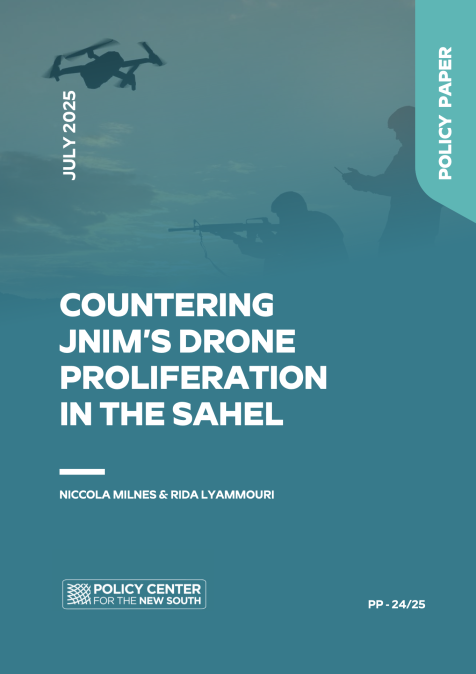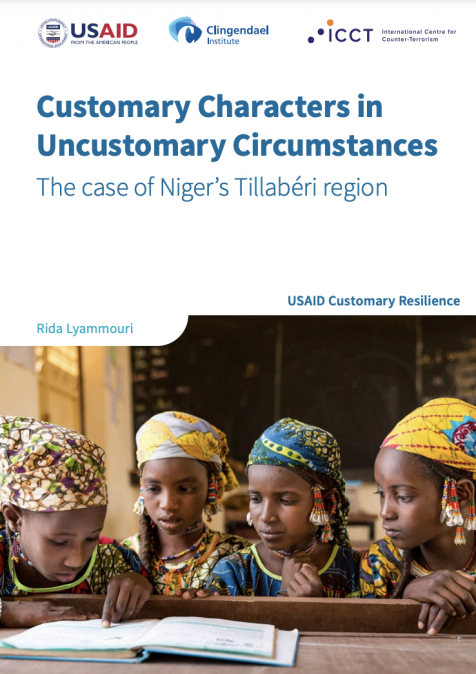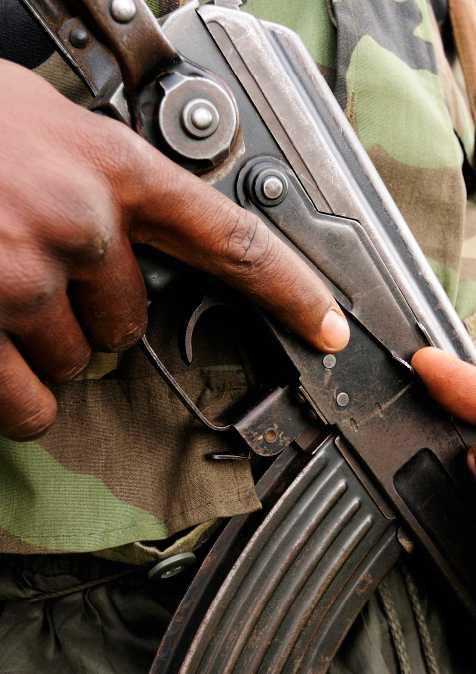Publications /
Policy Paper
Jama’at Nusrat al-Islam wal Muslimin (JNIM), alongside the Front de Libération de l’Azawad (FLA), has pioneered drone warfare in the Sahel–evolving from its first armed strike in September 2023 to over a dozen coordinated operations by June 2025. JNIM’s drone-enabled attacks–spanning kamikaze strikes, ISR- guided assaults, and visual propaganda–now target Mali, Burkina Faso, and Togo. It is the only known armed group in Africa–and one of the few globally–to conduct sustained, operational drone warfare across three countries. This cross- border reach and combat capabilities sets it apart not just in frequency, but also in geographic ambition.
The FLA’s early adoption of Vertical Take Off and Landing (VTOL) and First Person View (FPV) drones, combined with possible technical diffusion through joint operations and the integration of former FLA personnel, has likely contributed to JNIM’s accelerating drone capabilities. JNIM’s deepening integration of drone warfare presents several risks. First, the technical barrier to entry appears to have collapsed: commercial-grade drones modified with consumer-accessible tools and offline artificial intelligence (AI) are now sufficient for increasingly lethal operations. Second, geographic expansion is accelerating. Third, JNIM’s drone use appears shaped by grievance and psychological signaling, with visual propaganda often mimicking state strike footage to assert dominance and contest state airpower. Without coordinated intervention, the threat will likely evolve faster than current systems can track or counter. With the Sahel now being referred to as the ‘world’s terrorism hotspot’, immediate action is imperative, and closing these gaps is as much about creativity and coordination as it is about hardware.






